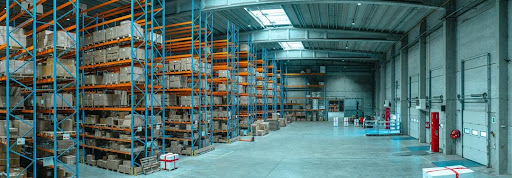7 Effective Ways To Overcome Supply Chain Delays

Robust supply chains are critical to businesses. When there are bottlenecks in the supply chain, customers don’t receive goods on time, suppliers aren’t paid promptly, and businesses lose money. For instance, in the wake of the COVID-19 pandemic, supply chain disruptions caused a lumber shortage. As a result, lumber manufacturers struggled to fulfill consumer demand, and contractors couldn’t deliver lumber on time.
While unforeseen contingencies that can disrupt supply chains, like the COVID-19 pandemic, are out of the control of businesses, here are seven effective ways to overcome supply chain delays should they happen.
1. Develop a Supply Chain Contingency Plan
Nearly 75% of U.S. businesses experienced supply chain delays due to the COVID-19 pandemic, according to a survey of 628 businesses by the Institute for Supply Management (ISM).
Natural disasters and pandemics like COVID-19 can cause an unprecedented spike in consumer demand for goods, leading to supply chain disruptions and delays. Still, businesses with supply chain contingency plans can cope better with supply chain disruptions and delays if they arise.
While supply chain contingency plans vary from one business to another, the prevention, preparedness, response, and recovery (PPRR) risk management model is a popular supply chain contingency plan used by many businesses. PPRR involves the following steps:
- Prevention: Taking measures to minimize or eliminate the effects of supply chain delays and disruptions.
- Preparedness: Developing an emergency plan should a supply chain emergency happen.
- Response: Implementing the emergency plan to minimize the impact of a supply chain disruption.
- Recovery: Restoring normalcy as soon as possible.
2. Perform a Supply Chain Vulnerability Audit
Often, specific points in the supply chain are weaker than others. That’s why businesses need to audit their supply chains to identify the most vulnerable points.
For instance, after performing a supply chain vulnerability audit, a business may discover it relies heavily on one supplier for a particular raw material. As a result, the business may decide to find alternative suppliers to mitigate potential supply chain delays if the supplier can’t supply the raw material.
When performing supply chain audits, businesses should consider classifying points in the supply chain as high, medium, or low risk to determine where the biggest vulnerabilities lie.
3. Stockpile Inventory
Many businesses keep minimal inventory to reduce storage costs and prevent goods from becoming obsolete. While keeping minimal inventory offers businesses several benefits, so can building it up.
Businesses that build up inventory have a lower risk of shortages. As a result, they can fulfill high consumer demand even if disruptions or delays in the supply chain occur.
4. Offer Suppliers Incentives
Reliable suppliers are essential to a resilient supply chain. Businesses with dependable suppliers can fulfill orders faster and mitigate supply chain delays, so they should strive to maintain good relationships with suppliers they can rely on.
Providing reliable suppliers with incentives is an excellent way to build a strong relationship with them. For example, a business can offer to pay the supplier within 15 days rather than 30 days as an incentive.
5. Leverage Inventory Management Software
Businesses need to keep track of inventory so that they can replenish it when it’s about to get depleted and avoid stockouts.
Inventory management solutions can enable businesses to keep track of all inventory from one central place and provide real-time updates on inventory levels so that businesses know when they need to restock.
6. Nearshore Supplies
Many companies rely on offshore suppliers for supplies. While offshore suppliers may be cheaper, companies that depend on them for supplies are at a higher risk of experiencing delays if there are disruptions in the supply chain.
Nearshoring supply by partnering with nearby suppliers can reduce lead times and minimize the effects of potential supply chain disruptions.
7. Automate AP Processes
Performing accounts payable (AP) tasks manually can significantly slow down the AP workflow, which can cause delayed supplier payments. This can lead to supply chain delays.
An AP automation solution can accelerate the AP workflow and minimize supply chain delays by:
- Eliminating manual workflows: AP automation eliminates manual, paper-based workflows by automating tasks such as invoice matching, coding, and approval.
- Reducing errors: Human errors account for 41% of accounting errors, according to a survey by BlackLine. AP automation solutions can reduce common errors like duplicate payments, preventing the need for AP teams to spend time investigating accounting errors and handling supplier complaints.
- Enhancing visibility: AP automation solutions can allow suppliers to track invoices and their status from an intuitive dashboard. This can enable suppliers to monitor their cash flow situations instead of contacting AP teams.
Minimize Supply Chain Delays With AP Automation
Supply chain disruptions cost businesses in the U.S. nearly 228 million annually, but AP automation can help businesses minimize supply chain delays and reduce losses. Contact Worldview today to schedule a demo of their AP automation solution.
Get Awesome Content Delivered Straight to Your Inbox!
Posts by topic
- Healthcare
- Business
- AI
- Hospice
- AP Workflows
- Home Care Management
- hospice-care
- General
- Industry Insights
- agency
- Blog
- Commercial
- reporting
- Data Analytics
- billing
- referrals
- News
- Referral AI
- business goals
- Operations
- business development
- partners
- Integration
- Healthcare Trends
- leadership
- Medicare
- Compliance
- audit
- medicaid
- Better Charting
- Home Health Reimbursement
- Medicare Compliance
- regulations
- Application
- Automation
- CMS Updates
- finance
- CRM
- DMSi
- Events
- KanTime
- LUPA Threshold
- Press Release
- Revenue Growth
- home Health Operations
- hospice workflow
- Announcements
- Artificial Intelligence
- EHR
- ESign
- Guides
- Homecare Homebase
- Mobile
- PDGM 2026
- Physician Order Tracking
- axxess
- clinical
- document management
- interoperability
- mobile documentations
- payor
- secure messaging healthcare
- workflow automation See All See Less


.png?width=596&name=23%20(1).png)
.png?width=596&name=1%20(18).png)
.png?width=596&name=1%20(14).png)